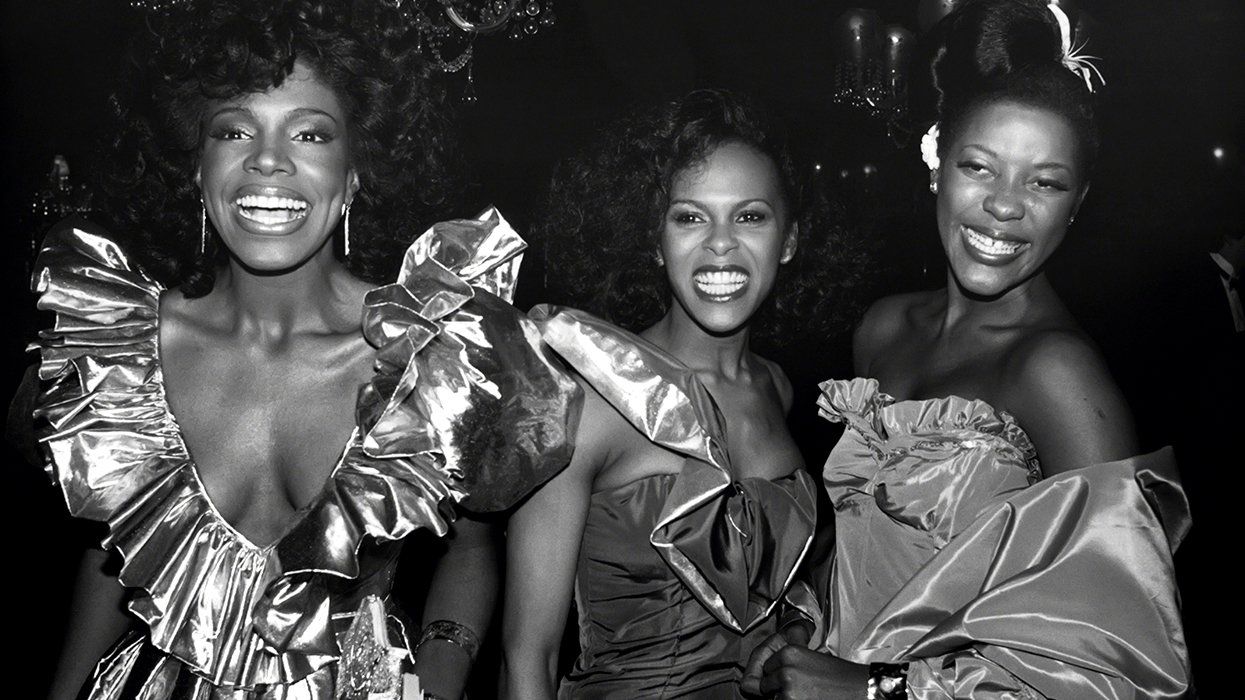Some people know actress Sheryl Lee Ralph for her work in TV (Moesha) and as one of the original Broadway Dreamgirls (she played Deena 25 years before Beyonce). Others know Ralph for her tireless HIV philanthropy. As part of her charitable organization, The Diva Foundation, Ralph has raised both awareness and bundles of money for HIV causes. Her annual fundraiser, Divas Simply Singing, has been raking it in for 21 years -- this year's event takes place on Saturday in Los Angeles and will feature Jennifer Holliday, Bonnie Pointer, Loretta Devine, and Glee's Amber Riley. Ralph has also partnered with Bristol-Myers Squibb to serve as the face for their "Fight HIV Your Way" contest. Now in its third year, "Fight HIV Your Way" asks people living with HIV to document their lives through photo essays. Where before the most powerful testimonies were featured in public spaces in New York and San Francisco, this year 10 winners' stories will be interpreted through dance by the prestigious Alvin Ailey American Dance Theater; the world premiere will debut on World AIDS Day, December 1, in New York City and will appear during select performances of the Company's 2011-2012 season. We spoke with Ralph about her campaigns and what keeps her running so hard in the name of HIV advocacy.
The Advocate: Tell us more about "Fight HIV Your Way."
Ralph: This contest is a wonderful effort in bringing the arts to the fight against HIV and AIDS. This year we're adding the whole element of dance with the Alvin Ailey Dance Company which you know is a renowned company. And to be able to have people's own HIV/AIDS stories put to music, put to dance, set up on the stage as a thing of beauty, to be shared with other people, is really thinking outside of the box. I've always felt there was room for the arts in the fight about AIDS and I'm so happy that Bristol-Myers Squibb has embraced it and we have a project like this.
How will Alvin Ailey interpret these stories?
They've got a brand-new choreographer, Robert Battle, who's taken over the creative reins from the great Judith Jamison. Rennie Harris, a renowned hip-hop choreographer, will be creating the new work, Home, inspired by the real stories of people impacted by HIV.
It seems like there's now a need to think creatively with HIV campaigns, with people living longer and the media paying less attention. Was that part of the impetus of Fight HIV Your Way?
Absolutely. I have long felt that what we have been doing in the past, is the past. Now we're moving on into the future and coming up with new different ways to get people's attention. Everybody seems to have the feeling that, I'll just pop a pill. It's just a disability, it's not the disease it used to be. A young man called me up yesterday to say, "Miss Ralph, you told me to take the test... and I'm positive." That call has never changed over 30 years -- the same fear, the same apprehension, the same not knowing is still the same as it was 30 years ago. Except now people are thinking, Now what do I do?, because they know they have something to do. It may not be the death sentence it was 30 years ago, but it certainly remains a life-altering existence.
Will you be at Home's debut performance?
Absolutely. I wouldn't miss it for the world. Since this whole contest was started I have been there for every year and I don't want that to change. I have long felt, like I said earlier, that there is room for the arts in the fight against the disease. There's something about song, there's something about dance, there's something about life through dance and song, through people being able to tell their story. To see this red ribbon take life is a really great thing. And there's not just one winner, there are 10 first-place winners, because they are all different aspects of stories put into this dance. We encourage people to go to the website and check it out.
You were part of a HIV community forum in Harlem recently that was hosted by Dionne Warwick. What were you trying to accomplish?
The message imparted there was, number one, we were in the middle of Harlem and we know the rate of HIV infection in Harlem is high. We also know that room wasn't as full as it should have been. What I've noticed from all my travels across the country is that anytime I go to a place that has a problem and folks don't show up, the problem is usually bigger than we thought. That was very hard to see. It was hard to see people still stuck not wanting to grasp the reality that the number one way to contract HIV in that community is through heterosexual sex. It was hard to see people not able to grasp the fact that there are interveneous drug users who have to be dealt with and needle-exchange programs are not programs from hell. It was hard to see that here we are going into the 31st year of AIDS come January 2012 and people still don't want to know much about a disease that is all around them. And the fact that it's 100% preventable, that's why I'm so excited about this project. It's a different way for people to grasp their own reality and tell their own story with pride. That's why we continue to do DIVAS Simply Singing. As long as people will come in and pay their money to see a diva strut with her big hair, wild wardrobe and attitude, and the simple gift of song, if that's what it takes to get people's attention, that's what we have to do.
You've been doing DIVAS Simply Singing for decades. How do you remain so tireless in your HIV work?
Because 30 years ago, my friends dropped dead under stigma, shame, and silence, and when they needed people the most they were not there for them. I'll never forget that -- how people had a chance to care and they chose not to. Had we cared back then we wouldn't be where we are right now where AIDS affects all of us. People found it easy to turn their backs on gay people because of what they thought about "those people." Now, 30 years later, we are all those people. And people are still dying under shame, stigma, and silence. I remember my friends, I remember what they looked like, I remember how they lived, I remember how they died. It's amazing to me how deep the silence is and how deep the silence seems to be killing folks quicker than the disease. I was talking with folks at the AIDS quilt project and they said to me, 'The AIDS quilt is 50 miles long and only half-a-mile is people of color. Because people of color don't even want to admit or acknowledge they've lost their loved ones.' I was like, 'We've got to stop that.'
For more information on Fight HIV Your Way, click here. For more information, and to buy tickets, for Divas Simply Singing on Saturday at Los Angeles's Wilshire Ebell Theater, click here.
















